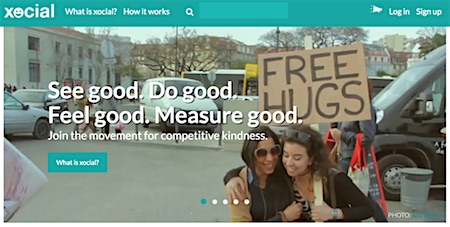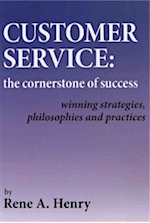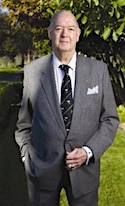Canadians Colin Duetta and Michael Salvatori have created a website they hope will launch a “competitive kindness movement to inspire the next generation of social responsibility.”
Duetta and Salvatori, longtime partners in Spedassist, Hamilton, Ontario, which markets special education software, have a start-up that asks people if they are using their "superpowers for good?"
 |
 |
| Duetta & Salvatori | |
The community, called "xocial" (same pronouncement as "social") aims to inspire do-gooders to complete challenges and then recognizes them for their efforts.
Goal is to encourage "the healthiest form of competition, the drive to inspire and do good."
They created xocial.com as an online community “curating competitive kindness to help mere mortals out-nice each other, and make the world a better place.” The site's slogan is: “See Good. Do Good. Feel Good. Measure Good.”
Visitors can participate in existing campaigns or create their own. It is being used in homes, workplace, classrooms and government offices, say Duetta and Salvatori. Charities see xocial as a tool to reach the next generation of do-gooders, they say.
 Participants build a “social impact score” by “completing challenges and engaging with others in the xocial community." Modern gaming science is used to build the XO score, called "a credit for your soul."
Participants build a “social impact score” by “completing challenges and engaging with others in the xocial community." Modern gaming science is used to build the XO score, called "a credit for your soul."
Presidential Debates, Coverage Sink to New Low
The site caught our attention because the battle for the U.S. Presidency has reached new lows in incivility including an obsession with personal attacks while major national and international issues get short shrift.
The “cartoon of a campaign” has become “100% smut” instead of focusing on policy substance, said a letter to the Oct. 15 New York Times by Margaret McGirr of Greenwich, Conn. We agree.
Major media, including NYT, have played up the personal attacks to the hilt, counting on them as circulation builders. Open battles are taking place with media. New York Post business columnist John Crudele, accusing the NYT of chronic unfairness, canceled his subscription. His paper is having a running battle with Mayor Bill de Blasio, accusing de Blasio of refusing to answer questions.
Where is Conciliatory PR?
PR for many decades performed a conciliatory role between clients in business and the government and the press. Only a few traces of that role are left as marketing and legal considerations have come to dominate those relationships.
Corporate and institutional PR contacts, when there are any, are under the watchful eye of legal, marketing and corporate executives. Calls and emails to institutions are often returned by outside PR counsel, if at all.
Most institutions at one time had formal outreach programs aimed at initiating press contacts. But that practice mostly disappeared decades ago. Informal contacts between press and PR dwindled. The 25 PR/press luncheon/dinner groups in the New York area disappeared.
PR Society:New York, which once had 68 mostly corporate members, was one of the last to fold, holding its last monthly lunch on April 22, 2013. Counselor Jill Totenberg said the end came after more than 50 years because it became hard to drum up enough attendees to make appearances by speakers worthwhile. Translation: lots of corporate PR jobs disappeared.
PR Contacts, Press Conferences Dwindle
PR Roundtable was PR reps from 35 New York PR firms that had monthly lunches at which reporters spoke. It also had a major holiday party. The reps reached out personally to media on a regular basis. There is currently no such job at any New York PR operation.
Press conferences by companies or institutions became a rarity. Just about vanished are jury trials. Most court cases are argued in judges’ private chambers in a series of “pre-trials.” Lawyer Marion Munley of Scranton, Pa., wrote in the Scranton Times that the scarcity of jury trials undermines the practice of law and is a threat to democracy.
Hillary Clinton went 277 days without a press conference before answering six questions on the tarmac at the airport in Westchester, New York Sept. 8, 2016. Donald Trump had 17 press conferences in 2016 but then went two months without one.
Henry Noted Decline of Courtesy
 Rene Henry, PR counselor and author of nine books including Customer Service: The Cornerstone of Success, wrote for odwyerpr.com Aug. 8, 2016 that “We have a generation that doesn’t understand the practice of basic common courtesy.”
Rene Henry, PR counselor and author of nine books including Customer Service: The Cornerstone of Success, wrote for odwyerpr.com Aug. 8, 2016 that “We have a generation that doesn’t understand the practice of basic common courtesy.”
|
|
He blames the “proliferation of social media and technology and a generation or two of people raising their children without teaching them manners.”
“Technology has made it much easier to communicate but few people do,” he wrote. “There’s little personal interaction anymore. It is rude not to answer letters or emails or return phone calls. I’ve always returned every letter, phone call, fax and now email and had that policy in every office I have headed. The same for screening phone calls. My secretary just puts the call through…this has paid me big dividends over the years.”
Henry hopes that PR, journalism and law professors will take up the task of teaching their students good manners.
Advice on good manners abounds on the web including essays by executive presentation coach Joyce Newman on cellphone etiquette and apologizing.
Poem Told of the Importance of Kindness
A poem by John Boyle O’Reilly (1844-1890) about “kindness” has stuck in our mind for many years. It is apropos today.
“What is the real good?” was his question.
Order, said the law court;
Knowledge, said the school;
Truth, said the wise man;
Pleasure, said the fool.
Love, said the maiden;
Beauty, said the page;
Freedom, said the dreamer;
Fame, said the soldier;
Equity, said the seer.
Spake my heart full sad:
The answer is not here.
Then within my bosom,
Softly this I heard:
Each heart holds the secret:
Kindness is the word.



 The NBA, which promotes legalized gambling 24/7, seems more than hypocritical for banning player for placing bets... Diocese of Brooklyn promises to issue press release the next time one of its priests is charged with sexual abuse... Truth Social aspires to be one of Donald Trump's iconic American brands, just like Trump University or Trump Steaks or Trump Ice Cubes.
The NBA, which promotes legalized gambling 24/7, seems more than hypocritical for banning player for placing bets... Diocese of Brooklyn promises to issue press release the next time one of its priests is charged with sexual abuse... Truth Social aspires to be one of Donald Trump's iconic American brands, just like Trump University or Trump Steaks or Trump Ice Cubes. Publicis Groupe CEO Arthur Sadoun puts competition on notice... Macy's throws in the towel as it appoints two directors nominated by its unwanted suitor... The Profile in Wimpery Award goes to the Ford Presidential Foundation for stiffing American hero and former Wyoming Congresswoman Liz Cheney.
Publicis Groupe CEO Arthur Sadoun puts competition on notice... Macy's throws in the towel as it appoints two directors nominated by its unwanted suitor... The Profile in Wimpery Award goes to the Ford Presidential Foundation for stiffing American hero and former Wyoming Congresswoman Liz Cheney. JPMorgan Chase chief Jamie Dimon's "letter to shareholders" is a must-read for PR people and others interested in fixing America and living up to its potential... Get ready for the PPE shortage when the next pandemic hits... Nixing Netanyahu. Gaza carnage turns US opinion against Israel's prime minister.
JPMorgan Chase chief Jamie Dimon's "letter to shareholders" is a must-read for PR people and others interested in fixing America and living up to its potential... Get ready for the PPE shortage when the next pandemic hits... Nixing Netanyahu. Gaza carnage turns US opinion against Israel's prime minister. Trump Media & Technology Group sees Elon Musk's X as an option for those who want the free expression promised by Truth Social but without Donald Trump, owner of 57.3 percent of TMTG... Chalk one up for "anti-woke warrior" governor Greg Abbott as University of Texas lays off 60 DEI-related staffers... Five percent of Americans see the US as its own worst enemy, according to Gallup.
Trump Media & Technology Group sees Elon Musk's X as an option for those who want the free expression promised by Truth Social but without Donald Trump, owner of 57.3 percent of TMTG... Chalk one up for "anti-woke warrior" governor Greg Abbott as University of Texas lays off 60 DEI-related staffers... Five percent of Americans see the US as its own worst enemy, according to Gallup. Nine of the Top 100 firms that participated in O'Dwyer's rankings last year apparently threw in the towel for the 2024 scorecard. Seven other firms also went AWOL.
Nine of the Top 100 firms that participated in O'Dwyer's rankings last year apparently threw in the towel for the 2024 scorecard. Seven other firms also went AWOL.


 Have a comment? Send it to
Have a comment? Send it to 
No comments have been submitted for this story yet.